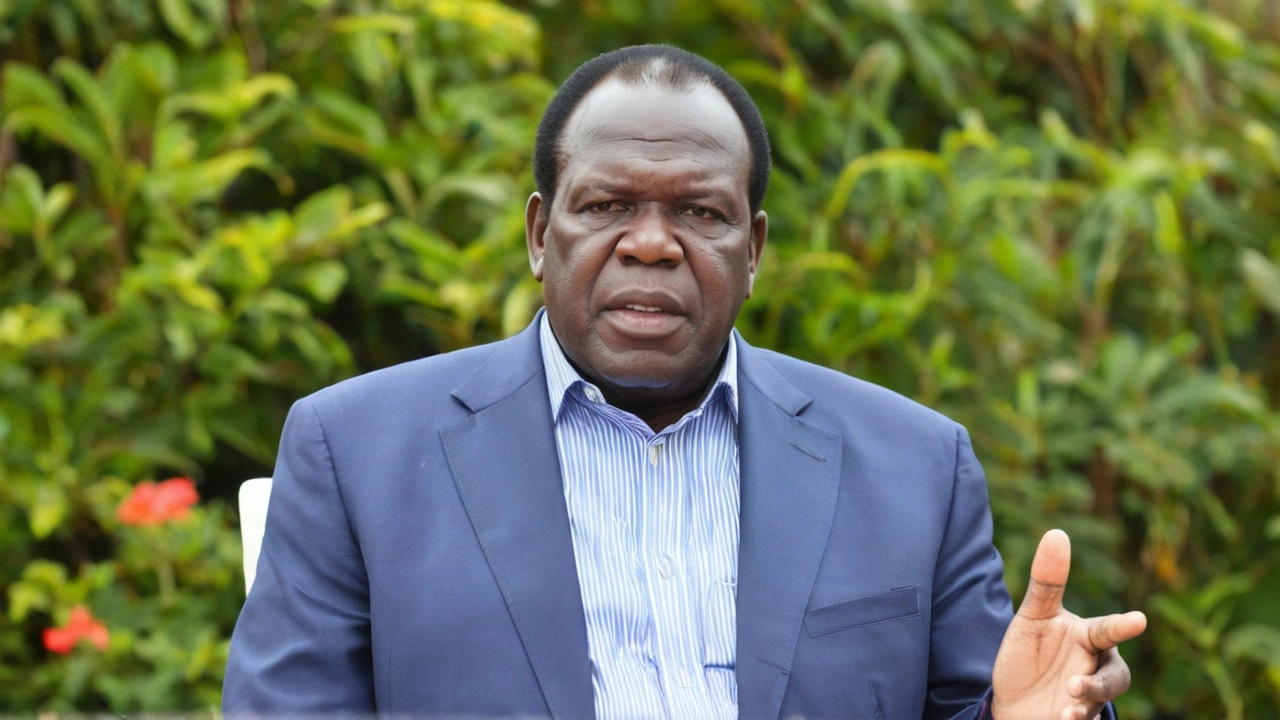Controversy Surrounds EACC's Block on Wycliffe Oparanya's Cabinet Secretary Nomination

A Heated Protest from Former Governor Wycliffe Oparanya
Kenya's political scene is once again embroiled in controversy, this time involving former Kakamega Governor Wycliffe Ambetsa Oparanya. Oparanya has formally protested against the Ethics and Anti-Corruption Commission’s (EACC) move to block his nomination as the Cabinet Secretary for Cooperatives and Micro, Small, and Medium Enterprises Development. His counsel, Danstan Omari, has dispatched a strongly worded letter to the Clerk of the National Assembly, seeking to halt his appointment scheduled for August 4, 2024. Omari has demanded that the EACC retract its communication dated July 29, 2024, and cease harassing his client with what he describes as unsubstantiated threats of corruption charges. This legal tussle throws a spotlight on the intricate dance between political nominations and the ethical scrutiny that accompanies them.
EACC's Claims Against Oparanya
The EACC had earlier written to the Clerk of the National Assembly, indicating that Oparanya was implicated in an alleged graft case. However, the dynamics shifted when the Director of Public Prosecution (DPP) stepped in. According to a letter dated July 8, 2024, the DPP had withdrawn consent to prosecute Oparanya, citing insufficient evidence to pursue the charges. This decision came in the wake of Oparanya's nomination by President William Ruto. The EACC, however, received the DPP's letter on July 25, 2024, and categorically rejected the DPP’s proposal, maintaining that the timing of the letter, post-nomination, was questionable. Oparanya’s refusal to accept EACC’s stance has escalated the standoff, expectedly culminating in potential legal proceedings if the EACC does not heed his demands.
Legal and Political Implications
The ongoing discord between Oparanya and the EACC is not just a personal legal battle but also raises broader questions about the integrity and suitability of nominees for public office in Kenya. Oparanya’s case exemplifies the often murky waters of political appointments and the rigorous scrutiny that follows. Critics argue that such controversies can erode public trust in statutory bodies like the EACC, while supporters of the commission insist that rigorous checks and balances are necessary to ensure the credibility and accountability of public officials. Oparanya’s legal strategy, rallying for the retraction of the EACC’s accusations, signifies a decisive measure to clear his name and secure his intended Cabinet position. The outcome of this dispute could set a precedent for how similar cases are handled in the future, potentially reforming the vetting process for public office nominations.
Political Climate and Public Perception
Assessing the political climate in which this dispute unfolds is crucial. Kenya has a history of politically charged legal battles, where accusations of corruption often play a contentious role. The intersection of legal protocol and political expediency becomes particularly pronounced during significant appointments. Oparanya’s clash with the EACC not only reflects the personal stakes involved but also the broader implications for governance and public trust. The perception of the EACC’s impartiality is under scrutiny, and how the commission manages this high-profile case could influence its future operational credibility. Meanwhile, public opinion remains divided. Sections of the population view Oparanya’s legal challenge as a fight against undue persecution, while others see it as an essential part of Kenya’s fight against corruption. The eventual resolution of this matter will inevitably shape public perception of both Oparanya and the EACC.
Context of the Allegations
The specific allegations against Oparanya remain a focal point of this ongoing saga. Details about the alleged graft case have been mired in ambiguity, with both sides presenting conflicting narratives. The EACC’s insistence on pursuing the matter despite the DPP’s withdrawal adds a layer of complexity, indicating potential underlying tensions between different branches of Kenya’s justice system. For Oparanya, the stakes are high. An established political figure with a significant following, his nomination for a Cabinet Secretary position symbolizes not just personal achievement but also a critical point in his career. His response, veering towards legal recourse, underscores a determination to challenge what he perceives as unfounded allegations. Meanwhile, the EACC’s firm stance highlights the commission’s commitment to its mandate, albeit in a contentious landscape.
Potential Legal Outcomes
Should Oparanya proceed with legal action against the EACC, the ensuing court battle could draw significant public and media attention. Legal experts suggest that the case’s outcome could hinge on the interpretation of procedural fairness and the verification of the evidence, or lack thereof, presented by the DPP. If the court sides with Oparanya, it could lead to a re-evaluation of the EACC’s procedural rigidity and possibly prompt amendments in its operational guidelines. Conversely, a ruling in favor of the EACC might reinforce the commission’s authority, albeit at the risk of heightened tensions with other judicial bodies. Such a ruling could also impact future nominations, introducing more exhaustive vetting processes and perhaps even revisions in the legislative framework governing public office appointments.
Broader Implications for Governance
This high-stakes conflict between Oparanya and the EACC underscores broader questions of governance and the interplay between politics and justice in Kenya. The integrity of public officials and the mechanisms in place to vet them are foundational to public trust in governance structures. Oparanya’s vehement protest against the EACC’s moves signifies a perceived need to balance scrutiny with fairness, ensuring that the pursuit of accountability does not morph into what some might deem a witch-hunt. Meanwhile, the EACC’s role remains pivotal, tasked with upholding ethical standards amidst an often contentious political environment. Observers note that the resolution of this dispute could serve as a bellwether for future interactions between political figures and oversight bodies, potentially shaping legislative reforms and influencing the public’s expectations of transparency and justice.